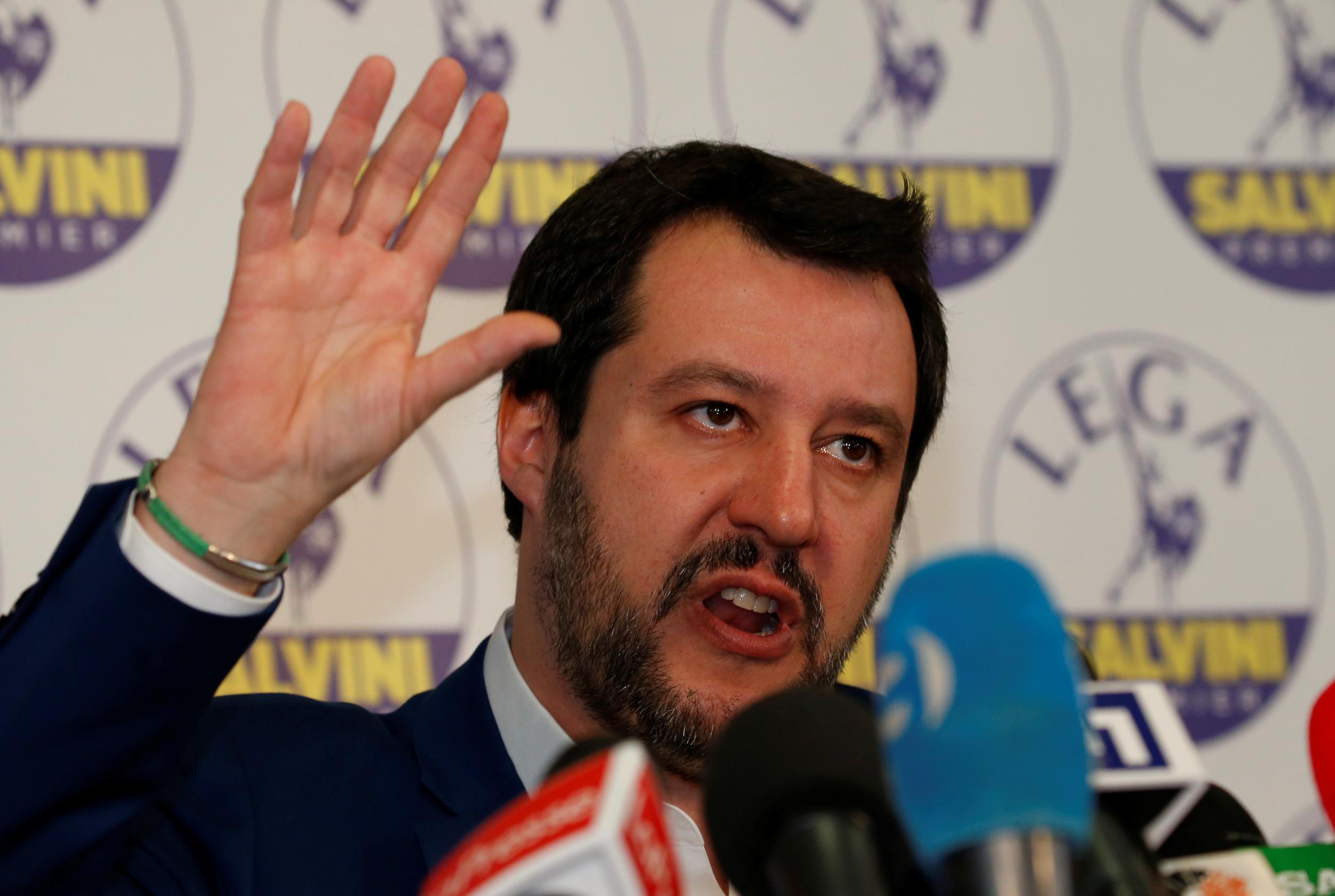Italian populist parties unveil programme for coalition government
The League and the Five Star Movement hope to form a government on Monday

Your support helps us to tell the story
From reproductive rights to climate change to Big Tech, The Independent is on the ground when the story is developing. Whether it's investigating the financials of Elon Musk's pro-Trump PAC or producing our latest documentary, 'The A Word', which shines a light on the American women fighting for reproductive rights, we know how important it is to parse out the facts from the messaging.
At such a critical moment in US history, we need reporters on the ground. Your donation allows us to keep sending journalists to speak to both sides of the story.
The Independent is trusted by Americans across the entire political spectrum. And unlike many other quality news outlets, we choose not to lock Americans out of our reporting and analysis with paywalls. We believe quality journalism should be available to everyone, paid for by those who can afford it.
Your support makes all the difference.Two Italian populist parties unveiled a joint programme for a coalition government on Friday, pledging to roll back austerity measures, repatriate migrants and put themselves on a collision course with Brussels.
The publication of the agreement brings the League and the Five Star Movement to the verge of forming western Europe’s first eurosceptic-led government – a development likely to send shockwaves through the EU.
The two parties’ members will be asked to vote on the plan, which calls for sharp tax cuts, a rollback of pension cuts and additional welfare spending for people on low incomes.
The programme also pledges to repatriate irregular migrants and block landlords of those trying to cross the Mediterranean to safety.
The League, a right-wing populist party mostly concentrated in the north of Italy with a record of anti-immigrant politics, has said it wants to leave the eurozone as soon as politically feasible.
The Five Star Movement’s politics is more ambiguous; an anti-establishment vein runs through its shifting policies. It emphasises direct democracy and sits in Ukip’s group in the European parliament.
Friday’s joint programme makes no mention of the parties’ stance on the EU or the euro, leaving the situation ambiguous. Officials in Brussels are worried that the parties will pick fights with the EU institutions if they get into government in one of the EU’s founding states.
League leader Matteo Salvini said he and Five Star leader Luigi di Maio would meet with Italy’s mostly ceremonial president on Monday to form a government if their members signed off on the plan in votes due to be held before Sunday.
“Days and nights of work,” he said in a statement on social media. “Do you like it?”
The Five Star Movement won the most votes in March’s elections, garnering 32.7 per cent. The Northern League came a narrow third behind the centre-left Democratic Party, winning 17.4 per cent; its wider electoral alliance, which included the centre-right, won 37.1 per cent.
Last year saw the election of a right-wing government in Austria that included the FPO as a junior partner. That eurosceptic far-right party is however in coalition with the OVP, which strongly supports continued EU and euro membership for Austria.
Asked about the apparent impending formation of the government, a spokesperson for the European Commission said: “I haven’t seen the text yet. As you said, this is an ongoing process.
“I haven’t actually seen a government that has been formed in Italy, so we have no comments to make in this stage. As always, it is the president [of the European Commission] who decides whether he wants to comment.
“We will wait and see and we will comment when we have more information, if we do have comments to make.”
Join our commenting forum
Join thought-provoking conversations, follow other Independent readers and see their replies
Comments